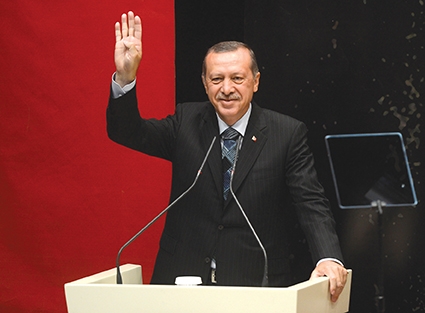Georgia Should Be Urging Turkey to Pursue a Policy of Unity
To analyze developments in Turkey, their importance for the region, NATO and Georgia, Voice of America's Anna Kalandadze spoke to William Courtney, former Ambassador to Georgia and Kazakhstan, also a member of the influential Council for Foreign Affairs and now an analyst with the Rand Corporation in Washington.
What happened in Turkey?
William Courtney: Apparently part of the military mounted a coup against President Erdoghan and the elected government of Turkey. It failed. The coup attempt was reminiscent of the 1991 attempt of a ‘putch’ in Moscow. For example, the coup plotters did not arrest or detain President Erdoghan, so he was able to rally his people the same way Boris Yeltsin in August 1991, also not arrested, was able to rally Russians against coup plotters. Secondly, it seems only part of the military supported the coup. Again, what we saw in Moscow where some of the military was supporting the coup, some of them were not. The larger lesson in some respect is that in educated societies hard line coup attempts and military rule are ideas that have fallen into disrepute.
How will it affect the region, the Middle East and specifically Georgia?
The United States and Europe are probably going to have to recalibrate and revise their policies with regard to the Syria question. It is the critical interest of the West that Turkey be a stable democracy. My guess is that now Western policy is going to have to give more emphasis to stabilizing Turkey and relatively less interest to stabilizing Syria. Syria is not as important to the West, as Turkey is. For Western interests and for Georgian interests in the region, a strong, stable, prosperous, democratic Turkey is very much in everyone’s interest.
What could this mean for NATO-Turkey relations?
NATO and the West in general will have a strong interest in stabilizing Turkey. So, for example, Erdoghan has said that this will be an opportunity to, quote, “cleanse the military.” That’s not the kind of policy that Erdoghan should pursue. He needs to pursue a policy that unites the country, rather than further divides it. This coup has come about in great part because Erdoghan has been a divisive and vindictive ruler. And divisive and vindictive politics do not work anywhere. They certainly did not work in Egypt under the Muslim Brotherhood and they are not working for Erdoghan. So, the big question is will Erdoghan learn lessons from this and try to be less polarizing in his politics, or on the other hand will he think he has won a victory and then pursue vindictive politics arresting large numbers of people, putting some of them to death? Erdoghan should learn from Boris Yeltsin. In 1991, after the ‘putch’ the coup leaders were treated with leniency and that stabilized Russia.
What should Georgia be doing in how it handles its relations with Turkey?
Georgia has good relations with Turkey and should maintain those relations, but this is also a time when Georgia as part of the West has an interest in a stable, democratic Turkey. Georgia is a small country, but at the same time as part of the West, Georgia should be urging Turkey to pursue a policy of uniting the country, bringing people together, rather than a policy of divisiveness and vindictiveness toward the coup plotters.
What about Turkey’s fight against ISIS?
Most likely, Turkey is going to have to turn inward now to a greater extent and the fight against ISIS is going to take second priority. Turkey really needs to focus now on bringing its own people together, strengthening itself, rather than engaging to the same extent in Syria.
Link to the Georgian story:
http://www.amerikiskhma.com/a/amb-william-courtney-interview-on-turkey-developments/3421639.html
Anna Kalandadze, Voice of America Georgian Service












